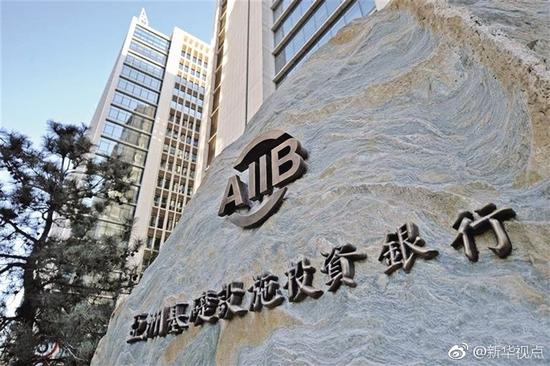
A file photo shows the headquarters of the Asian Infrastructure Investment Bank in Beijing.. (File photo)
Beijing (People's Daily app) - The Asian Infrastructure Investment Bank’s (AIIB) Board of Directors has approved a US$250-million loan for a coal usage reduction project in China. Through connecting about 216 750 households in 510 rural villages to the distribution network of natural gas, the project aims at reducing China’s coal usage by about 650,000 tons annually.
Upon completion and after subtracting the emissions of burning natural gas, the Beijing Air Quality Improvement and Coal Replacement Project is expected to reduce annual carbon dioxide (CO2) emissions by 595,700 tons, particulate matter by 3,700 tons, sulfur dioxide (SO2) by 1,488 tons and nitrogen oxide (NO2) by 4,442 tons.
China’s commitment to the reduction of its reliance on coal will change lives and improve the environment, and that is why we are investing in a project aligned with their ambitious plan, says AIIB President Jin Liqun. "With our unwavering commitment to helping members meet their environmental and development goals, especially their commitments under the Paris Agreement, it is only fitting that our first investment in China will introduce sustainable infrastructure that will reduce greenhouse gas emissions and help vitalize one of the most important economic hubs in Asia."
The investment in the project represents AIIB’s first corporate loan. The project, undertaken by the Beijing Gas Group Company, will involve the construction of natural gas distribution networks in villages and low-pressure gas pipelines and household connections. Gas consumption meters will also be installed. The project is scheduled for completion in 2021.
"Enabling parts of rural China to transition off coal will have a marked impact on the quality of life for Beijing’s residents," said AIIB Vice President and Chief Investment Officer D.J. Pandian. "This investment demonstrates our commitment to helping members transition to cleaner sources of energy and our focus on enhancing the economic and social viability of Asia."
The coal-to-gas conversion will make rural households less reliant on coal for cooking and heating, improving indoor and outdoor air quality and lessening the risk of respiratory, cardiovascular and ischemic heart diseases in impacted regions, including Beijing. Children, women, the sick and the elderly stand to benefit primarily as they are the most vulnerable to these risks.
Public consultations and information disclosure were carried out during project preparation phase. AIIB’s environmental and social due diligence—including site visits—indicated that there will be no land acquisition or population displacement in the project areas. The environmental and social management plan has been disclosed on the Beijing Gas website and on AIIB’s website.


